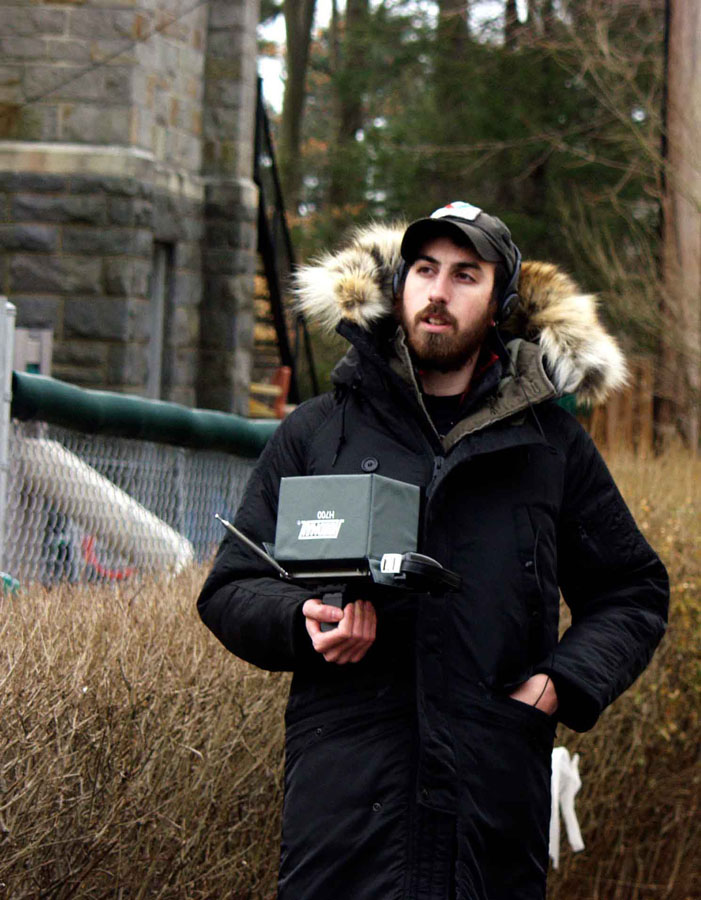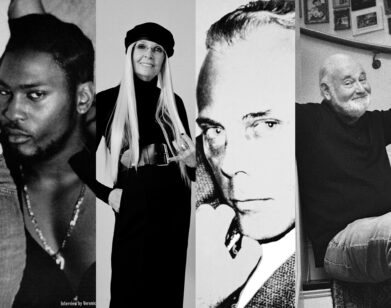Oh the Horror: Ti West on Filmmaking

At the tender age of twenty-eight, Ti West has written and directed four feature films that resurrect the tired horror genre. The Los Angeles-based director’s work has consistently straddled the line between genre kitsch and realism; witness his diverse filmography: West’s first film, The Roost, is a campy bite on vampirism as a group of stranded twenty-somethings are terrorized by homicidal bats. His follow up, Trigger Man, offsets a terrifying masked-gunman plot with a bleak naturalism that would make Gus Van Sant proud. The precocious West has also dipped a toe in the Hollywood waters as director of the as-yet-unreleased Cabin Fever 2, the much anticipated sequel to Eli Roth’s gross-out hit. His latest, The House Of The Devil, premieres on April 25 at the Tribeca Film Festival. HOTD is an early-Eighties period piece about a broke college girl who wants to move out of her dorm and takes a babysitting job to make some extra cash. When her eccentric employers turn out to be members of a satanic cult, terror ensues. Interview sat down with West to discuss the appeal of the 1980s, how horror is like porn, and what it means to be a “difficult” director.
LENA DUNHAM: It’s interesting that you made a film set in the Eighties. You’re really more of a child of the Nineties.
TI WEST: My teen years were certainly in the Nineties, but being an only child and kind of a weirdo, my formative years were when I was much younger. Much of the stuff I relate to is from the Eighties, at least cinematically. I get a little off-put when people see The House of the Devil as an homage to the Eighties because I consider “homage” to be sort of like parody. Would you say Zodiac is an homage to the Seventies? No, it’s a movie that takes place in the Seventies. HOTD is a period piece, so everything takes place in the Eighties, but it’s not kitschy, video-killed-the-radio-star Eighties. It’s brown, feathered hair, wood-paneling Eighties.
LD: Formally, what about the films of that decade appeal to you?
TW: There was just a different pacing and a different style of filmmaking back then. All of that ended at the beginning of the Nineties with MTV editing. The Eighties were the last decade where the actual filmmaking was still treated with some respect, even if it was horror.
LD: How would you describe the state of horror today?
TW: Horror is really unfortunate now. It’s like porn. What seems to have happened is that everyone decided the horrific stuff is what makes these types of films successful so there is no time spent on the “real life” aspect anymore. It becomes just one kill or cum-shot after another. Mainstream horror is only about titillation. That, to me, is the same as pornography.
LD: And a good horror film? TW: People always ask what makes a good horror movie and it’s essentially one big thing-contrast. All of the stuff in the film that’s not horror is what makes all of the horror stuff work. I make regular movies that turn into horror movies. Because that’s what life is like. Right before a home invasion you would probably just be sitting around watching youtube or texting someone and then suddenly your life becomes totally horrifying and beyond your control.
LD: How do you feel about being known as a genre-movie guy? (LEFT: TI WEST)
TW: Hate it… I mean, I love the support, but I don’t like being labeled.
LD: You clearly have cinematic interests beyond horror—Trigger Man, for example, has a real Dogma-95 feel and shies away from any obvious terror.
TW: I don’t like only being known as a horror director because it’s like being in the porn industry. It’s tough to break out and be taken seriously. Most hardcore genre fans don’t really like my movies. If you’re labeled a genre director, then you should feel like you’re part of that world. I don’t entirely. I’m on the fringes, which can be an awkward spot.
LD: Well, once you’ve already made a few successful horror movies, the easiest films for you to get financed will probably be in that genre.
TW: That’s true. If you make a really low budget movie that’s horror, there’s an outlet for it because, like porn, there’s always an audience. Trigger Man is so not really much of a horror movie and, my God, are people disappointed when they find that out. Because people see the DVD cover and then they watch it and wonder “what is this shitty experimental low-budget art film?” But that movie made its money back and sold in video stores because of the horror element. That’s not at all why I made it…But that’s how it works.
LD: There’s a lot of talk on the Internet about why Cabin Fever 2 hasn’t been released yet. It sounds like post-production has been rife with problems, and you are no longer involved in the project due to artistic differences. Are you worried about being labeled a difficult director? TW: To me, “difficult” means not coming out of the trailer because you didn’t get the right kind of M&Ms. Being passionate and opinionated about your work and being able to articulate it, I don’t think that makes you difficult. I think that makes you argumentative. And I’m certainly argumentative. I stand my ground and sometimes I pay the price for it.
LD: You’re also prolific, so maybe your attitude’s not a problem.
TW: I like prolific people. I don’t want to make one movie that changes the world. I’d much rather make fifty movies where people can say, “Well, some of them I like much more than others. But generally they’re all pretty good.” That, to me, is a career to be proud of.






